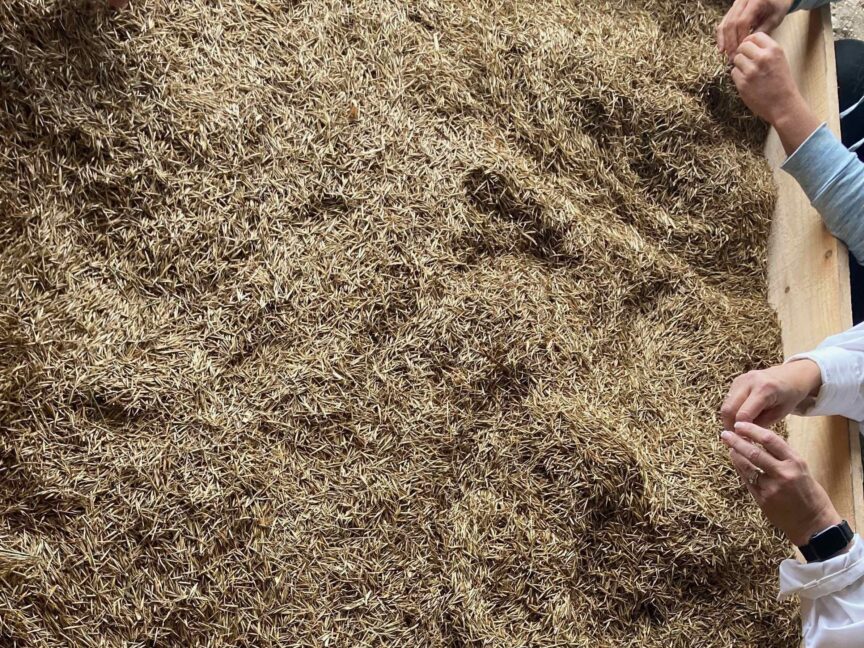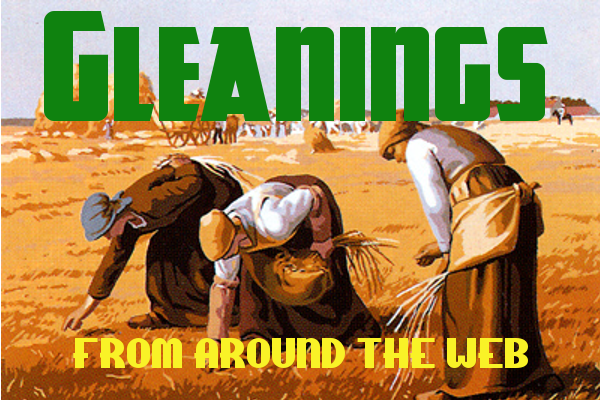This week, retired USDA economist Bruce Reynolds writes about the importance of permanent capital for cooperatives, and the several ways that co-ops use to acquire it. Some of these methods, like holding indivisible reserves, have been around for centuries while others are of more recent vintage, such as selling preferred shares to nonmembers.
Then, since we're a little short on content this week due to the holiday, we're re-sharing an article by Jessica Milgroom and Simone Senogles on Indigenous Food Sovereignty and the importance of manoomin, or wild rice, to the Anishinaabe people of the Great Lakes region.
And as it is giving Tuesday, if you're feeling generous and appreciate the coverage of cooperatives and the solidarity economy that GEO provides, consider making a one-time or continuing contribution.
Sources of Permanent Capital for Cooperatives
by Bruce J. Reynolds
Several initiatives for increasing access to permanent capital for cooperatives emerged in recent decades. Credit Unions have started using subordinated debt based on their member lending activities. Since 2007 several cooperatives across all sectors have offered preferred stock to members and nonmembers. Recent cooperative incorporation statutes have provided for investments by community nonmembers into collective reserves without requirements of dividend payments.
Harvesting is an act of indigenous food sovereignty
by Jessica Milgroom & Simone Senogles
For a period of about 15 years, from 1950-1965, harvesters were able to make a considerable profit selling unprocessed wild rice. The lucrative market paved the way for domestication of the plant and the cultivation of “wild” rice in paddies in the late 1960s. By the 1980s, 95% of “wild” rice on the market was paddy rice, the majority of which was produced in California, causing a crash in the market for hand harvested wild rice. Today, many people are fighting to revitalize the hand-harvested manoomin tradition and economy and to protect the manoomin beds. Continued harvest of manoomin represents resilience and resistance for Anishinaabe people.
Addressing Mental Health Through a Social Justice Lens
Nonprofit Quarterly — While academics debate whether smartphones are responsible for the recent surge in depression and anxiety among young people, and state and local governments across the United States experiment with solutions like free access to online therapy, a growing number of clinicians and grassroots advocates are completely rethinking how we approach mental health...
How co-ops led hurricane relief efforts in WNC
Critical Mass (YouTube) — Did you know co-ops in Western North Carolina led relief efforts to get needed supplies to their communities? In this video, I’ll share my experience connecting with co-op relief efforts after Hurricane Helene hit Upstate South Carolina and Western North Carolina...
Mutual Aid, Not Charity
Diverse Economies for Youth — With candor and compassion, Mabinty and Serena determine how mutual aid builds community and increases feelings of empowerment. While charity intitivaties in Canada may have positive intentions, its impact cannot compare to that of mutual aid - which Mabinty highlights with her experiences in leading cooperative banking and supporting her community with it...
Like what you find on GEO?
Make a Donation Today!
Your tax-deductible contribution ensures that GEO can continue to provide independent grassroots content about the cooperative and solidarity economy movements.
Got something to say?
Let us know. Send your comments, suggestions, rants and article submissions to editors@geo.coop.
Follow us on Social Media
Mastodon: social.coop/@GEO_Collective
FB: facebook.com/GEOCollective
Twitter: twitter.com/@GEO_Collective
Instagram: instagram.com/grassrootsecon
Our mailing address is:
Grassroots Economic Organizing
P.O. Box 115
Riverdale MD 20738-0115




